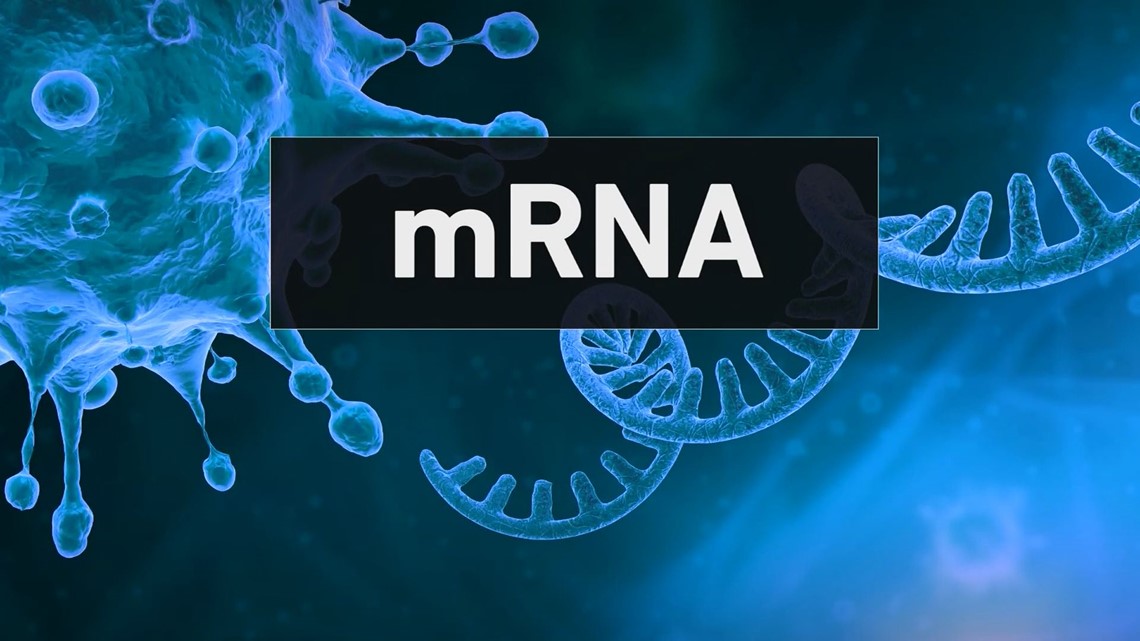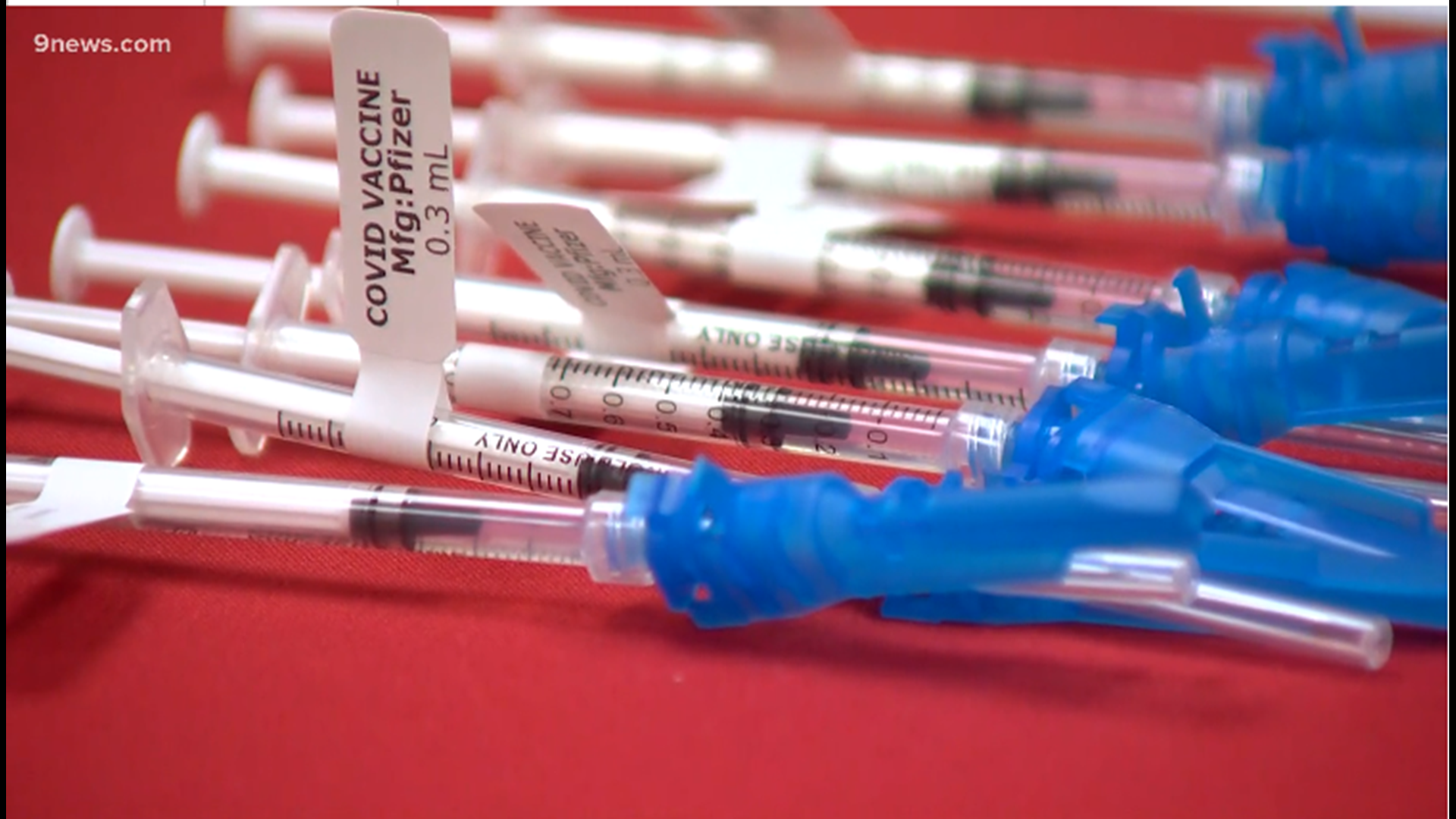DENVER — Pfizer began shipping its COVID-19 vaccine across the U.S. this week, but a lot of people still have questions and concerns about what's in the FDA's first-ever emergency-use vaccine.
9NEWS talked to two local experts – 9Health Expert Dr. Payal Kohli and UCHealth's Chief Clinical Research Officer Dr. Thomas Campbell – to find out more about what's inside that shot
Editor's Note: This interview has been edited for context and clarity
9NEWS: What ingredients are in Pfizer's COVID-19 vaccine?
Kohli: The nice thing about the Pfizer vaccine is that the list of ingredients has already been made public and the company has been extremely transparent with exactly what's in the vaccine.
It's really exactly what you would expect in a standard vaccine.
The four components are the mRNA, the fats to stabilize it, the salts to maintain the pH, and the sugar to prevent it from degrading during freezing – nothing surprising there.
What is mRNA?
Kohli: mRNA is messenger RNA, the main component of the vaccine. It's the genetic code for that part of the vaccine that's going to cause your immune system to make antibodies.
Campbell: mRNA is the substance in our cells that contains the recipes for making proteins.
We have tens of thousands of different proteins in our body. Each of our proteins is made using the information, or the recipe, in a unique mRNA molecule. And that's how our cells know how to make different proteins.
The Pfizer and the Moderna vaccines are nothing more than an mRNA that has the recipe for making the virus' spike protein.


Why do we want the vaccine to have the recipe for making a protein found in COVID-19?
Kohli: The virus's spike protein is what the COVID-19 virus uses to get into your cells. As soon as your body sees the virus's spike protein, it says, 'Wait a minute, this is foreign.' And it mounts an immune response and makes antibodies against the spike protein.
Those are the most effective type of antibodies because they're "neutralizing antibodies."
So what we're doing instead of injecting the virus's DNA, we're injecting the next step down, which is the messenger RNA. So that when the mRNA is injected into the host, the host actually reads that and starts to make the viral spike protein without having to be exposed to the COVID-19 virus.
That way, if I get exposed to the virus after getting the vaccine, my body already knows how to make those antibodies that can really attack the part of the virus that is trying to get into my cells. Those antibodies neutralize the virus, preventing it from getting into my cells and that's how an immune response is formed.
Is it safe?
Campbell: The data from both the Pfizer and Moderna vaccine trials indicate that there are no safety concerns so far. There is no reason to think right now that there would be any longer-term risk that’s being missed from the short-term data that we have.
The other part of that is that the Moderna trial had 30,000 participants. The Pfizer trial had 45,000 participants. Between the two, 75,000 participants.
Now we're getting these vaccines to millions of people, hundreds of millions of people. It is possible that there will be some rare side effects that would have been missed because only 75,000 people were enrolled in the trials.
That happens with all vaccines. And with all vaccines, we continue to learn about the safety of the vaccine as hundreds of millions of people receive it. There's just no way that we can detect those very low occurring events in clinical trials.
But I feel confident enough that I've scheduled my appointment for my vaccine on Friday.
Will the COVID-19 mRNA vaccine make you sick?
Kohli: Actually, the messenger RNA vaccine cannot make you sick. The flu vaccine, for example, does have some live versions where they actually inject the live virus just diluted out into your system in order to induce an immune response. So, theoretically, you could eventually catch the flu from the vaccine.
The nice thing about this vaccine is that it's a messenger RNA vaccine, which means it's only a genetic code for part of the virus. And there's absolutely no way that it can actually give you the coronavirus, unlike some of the other vaccines that we're used to.
This vaccine was developed extremely fast. Should that be concerning?
Campbell: It is absolutely true that this has shattered previous records for getting a vaccine from conception to implementation. But none of that involved cutting any corners. Safety wasn't brushed under the rug here.
It's a new technology that has advantages and gets away from some of the issues that have been raised about older vaccine technologies. But, because it is a new technology, there are unknowns.
For myself, I'd rather take that risk and help put an end to the pandemic than to spend the next three years sitting in my house ordering meals in.
SUGGESTED VIDEOS: COVID-19 Coronavirus

